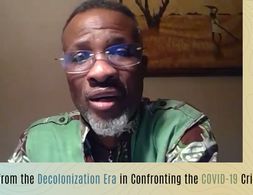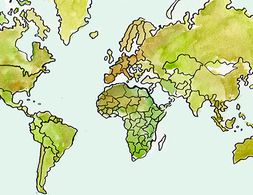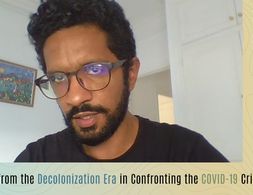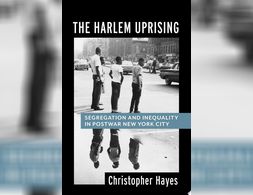✕
286 results
From the two premises that (1) economies are complex systems and (2) the accumulation of knowledge about reality is desirable, I derive the conclusion that pluralism with regard to economic research programs is a more viable position to hold than monism. To substantiate this claim an epistemological framework of how scholars study their objects of inquiry and relate their models to reality is discussed. Furthermore, it is argued that given the current institutions of our scientific system, economics self-organizes towards a state of scientific unity. Since such a state is epistemologically inferior to a state of plurality, critical intervention is desirable.
If there’s one method economists have neglected the most, it’s qualitative research. Whereas economists favour mathematical models and statistics, qualitative research seeks to understand the world through intensive investigation of particular circumstances, which usually entails interviewing people directly about their experiences. While this may sound simple to quantitative types the style, purpose, context, and interpretation of an interview can vary widely. Because of this variety, I have written a longer post than usual on this topic rather than doing it a disservice. Having said that, examples of qualitative research in economics are sadly scant enough that it doesn’t warrant multiple posts. In this post I will introduce qualitative research in general with nods to several applications including the study of firm behaviour, race, Austrian economics, and health economics. More than usual I will utilise block quotes, which I feel is in the spirit of the topic.
The Covid-19 pandemic has laid bare the deep structural rifts in modern capitalist economies. It has exposed and exacerbated the long-lasting systemic inequalities in income, wealth, healthcare, housing, and other aspects of economic success across a variety of dimensions including class, gender, race, regions, and nations. This workshop explores the causes of economic inequality in contemporary capitalist economies and its consequences for the economy and society in the post-pandemic reality, as well as what steps can be taken to alleviate economic inequality in the future. Drawing from a variety of theoretical and interdisciplinary insights, the workshop encourages you to reflect on your personal experiences of inequality and aims to challenge the way in which the issue is typically approached in economics.
Complexity economics focuses on interactions and interdependencies between individuals and structures in economic systems. Those are systems of organised complexity. High importance is given to the analysis of networks.
Austrian economics focuses on the economic coordination of individuals in a market economy. Austrian economics emphasises individualism, subjectivism, laissez-faire politics, uncertainty and the role of the entrepreneur, amongst others.
Tetteh Hormeku-Ajei, member of the Post-Colonialisms Today Working Group, discusses the role of the state in Africa during the COVID-19 pandemic.
In this article, Tetteh Hormeku-Ajei and Camden Goetz discuss the ongoing impacts of colonialism on Africa’s natural resources.
In this article, Jihen Chandoul discusses the importance of food sovereignty in Africa, reflecting on the continent’s early post independence movements for self sufficiency.
A previously unpublished collection of Rodney's essays on Marxism, spanning his engagement with of Black Power, Ujamaa Villages, and the everyday people who put an end to a colonial era
The global financial crisis (GFC) led to increasing distrust in economic research and the economics profession, in the process of which the current state of economics and economic education in particular were heavily criticized. Against this background we conducted a study with undergraduate students of economics in order to capture their view of economic education.
Introduction Economics is by necessity a multi paradigmatic science Several theoretical structures exist side by side and each theory can never be more than a partial theory Rothschild 1999 Likening scientific work to the self coordinating invisible hand of the market Michael Polanyi cautioned strongly against centralized attempts to steer …
Stratification economics is defined as a systemic and empirically grounded approach to addressing intergroup inequality. Stratification economics integrates economics, sociology and social psychology to distinctively analyze inequality across groups that are socially differentiated, be it by race, ethnicity, gender, caste, sexuality, religion or any other social differentiation.
This article investigates the set up of the CFA franc zones, its ties to French neocolonialism and its ability to further breed dependency in the former colonies.
Post-Colonialisms Today researcher Chafik Ben Rouine looks to Tunisia’s post-independence central banking method to provide insight on what progressive monetary policy can look like.
Yao Graham, coordinator of Third World Network- Africa, reflects on lessons learned from past Economic Partnership Agreements (EPAs), specifically as they relate to the Post-Cotonou Agreement.
Christopher Hayes examines the causes and consequences of the uprisings, from the city’s history of racial segregation in education, housing, and employment to the ways in which the police both neglected and exploited Black neighborhoods.
How can we establish new institutions and practices in order to use fare-free public transport as a beacon for sustainable mobility and a low-carbon lifestyle? The author of this essay elaborates on how practice theory and institutional economics can help to answer this question.
A historical glimpse of how economists of the 19th century debated the usefulness of mathematics to economics
Health Economics traditionally involves two distinct strands. One focuses on the application of core neoclassical economic theories of the firm, the consumer and the market to health-seeking behaviour and other health issues. It suggests a role for government intervention only in the case of specific market failures (for example externalities, asymmetric information, moral hazard, and public goods) that distort market outcomes. The second strand is evaluation techniques, used to assess the cost effectiveness of competing health interventions.
Capitalism is dissolving boundaries - not only in the sense of ever-expanding global trade flows, but also in the concrete everyday working lives of individuals. What implications does this have for our understanding of freedom, work and borders?
Behavioural economics deals with observing behaviour and economic decision making behaviour.
Feminist economics focuses on the interdependencies of gender relations and the economy. Care work and the partly non-market mediated reproduction sphere are particularly emphasised by feminist economics.
The current global financial system may not withstand the next global financial crisis. In order to promote the resilience and stability of our global financial system against future shocks and crises, a fundamental reconceptualisation of financial regulation is necessary. This reconceptualisation must begin with a deep understanding of how today's financial markets, regulatory initiatives and laws operate and interact at the global level.
The outbreak of COVID-19 has substantially accelerated the digitalization of the economy. Yet, this unprecedented growth of digital technology brought novel challenges to the labour market. Rise in income inequalities and precarious working conditions or polarization of jobs. In this essay, we try to assess what tools to use to counter these trends.
One method of economic modelling that has become increasingly popular in academia, government and the private sector is Agent Based Models, or ABM. These simulate the actions and interactions of thousands or even millions of people to try to understand the economy – for this reason ABM was once described to me as being “like Sim City without the graphics”. One advantage of ABM is that it is flexible, since you can choose how many agents there are (an agent just means some kind of 'economic decision maker' like a firm, consumer, worker or government); how they behave (do they use complicated or simple rules to make decisions?); as well as the environment they act in, then just run the simulation and see what happens as they interact over time.
What’s inflation? Why is it relevant? And is there an agreed theory about its roots and causes, or is it a contentious concept? That’s what this text is all about: We define what inflation actually means before we delve into the theoretical debate with an interdisciplinary and pluralist approach: What gives rise to it, what factors might influence it, and, consequently, what might be done about it?
The Philosophy of Economics Foundational Text provides a systematic and well-structured overview over the field of philosophy of economics.
How do people make decisions? There is a class of models in psychology which seek to answer this question but have received scant attention in economics despite some clear empirical successes. In a previous post I discussed one of these, Decision by Sampling, and this post will look at another: the so-called Fast and Frugal heuristics pioneered by the German psychologist Gerd Gigerenzer. Here the individual seeks out sufficient information to make a reasonable decision. They are ‘fast’ because they do not require massive computational effort to make a decision so can be done in seconds, and they are ‘frugal’ because they use as little information as possible to make the decision effectively.
An essay of the writing workshop on contemporary issues in the field of Nigerian economics: The adverse effect of climate change is overwhelming, not just in Nigeria but globally. Global warming is the result of hostile human activities that have impacted the environment negatively. This is the principal variable the government should tackle through practical innovations such as the acceptable implementation of Adaptation Policies and also through the adequate implementation of environmental tax. These will enhance pro-environmental behaviour which is fit for socio-political and economic activities for sustainability.
An essay of the writing workshop on contemporary issues in the field of Nigerian economics: In Nigeria, it appears that there is nothing in the constitution, which excludes the participation of women in politics. Yet, when it comes to actual practice, there is extensive discrimination. The under-representation of women in political participation gained root due to the patriarchal practice inherent in our society, much of which were obvious from pre-colonial era till date.
This lecture offers a general and introductory overview of the theory of racial capitalism, focusing on the origins of racial capitalism and some of the debates it has generated.
An essay of the writing workshop on Nigeria’s Readiness for and the Effect of the Fourth Industrial Revolution
We use cookies on our website. Click on Accept to help us to make Exploring Economics constantly better!































